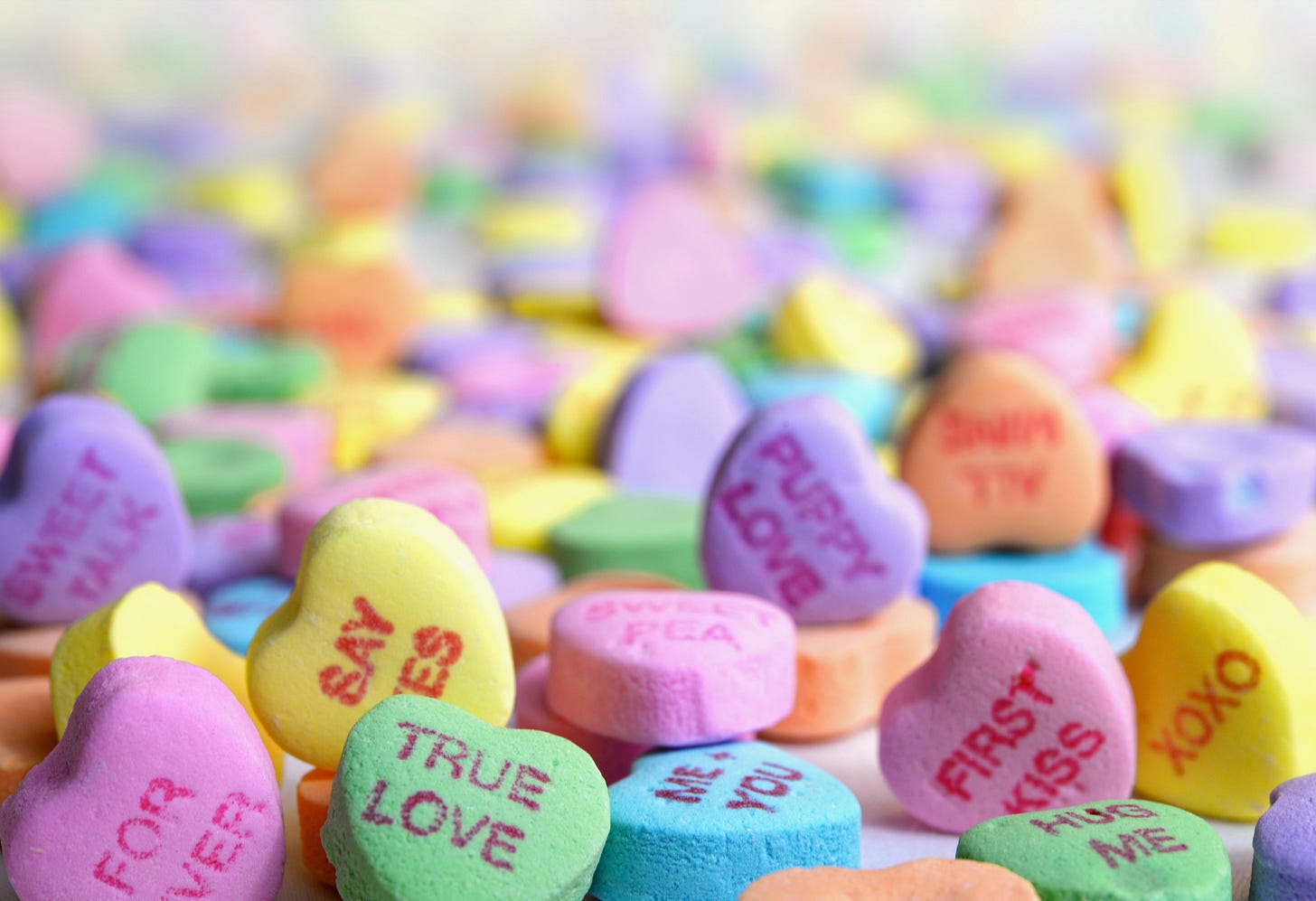
A month ago, I got a puppy. This is not my first rodeo, so I can’t plead ignorance—but for the last four weeks, all I’ve been thinking is, What have I done? I found myself wondering if menopause might be the culprit. Do the ovaries produce some magical bonding hormone that I no longer have access to? Had my reservoir of oxytocin dried up?
Despite his undeniable cuteness (puppy breath, fuzzy fur, sweet kisses), I struggled to love this little guy. It wasn’t his fault—he’s actually quite good, as puppies go—but the never-ending care, the middle-of-the-night potty breaks, and the constant chewing felt overwhelming. The constant chewing. There’s a reason we begin to procreate at fourteen, I joked to myself. Maybe I’m just too old to raise a newborn. Maybe I’m at the “puppy grandma” stage of life.
And yet, even without that sentimental gush of adoration, I found myself tending to his needs, letting my life be subsumed by his whimpering and chewing and unpredictable bathroom schedule. Why? Because love is a verb, not a feeling.
When Words Don’t Match Actions
This week marks the annual holiday of love—whether you embrace or eschew Valentine’s Day, it’s hard to avoid the constant chatter about romance and affection. If there were a competition for the topics that fill up a therapist’s calendar, love and money would be tied for first place. Despite millennia of human existence, we still wrestle with love. Why?
I’d suggest it’s because many of us think of love as a feeling. It’s that warm rush, the butterflies, the sense of security or adoration. But feelings can be slippery, sometimes fleeting. Who wants to succumb our fragile hearts to something so reliable?
“O swear not by the moon, the inconstant moon, lest that your love prove likewise variable.” Romeo & Juliet Act 2, Scene 2
We also run into conflicts when someone says they love us, yet their actions don’t align. How many of us had parents who told us “I love you” but also hit, yelled, or shamed us? Is it any wonder love feels confusing?
I’m not questioning the sincerity behind “I love you” when people say it. I’m sure they mean it on some emotional level. But it becomes a lot less perplexing if we treat love like a verb—something you do rather than just a feeling you experience.
If someone cheats, belittles, or ignores you, their behavior isn’t loving, no matter how many times they speak the words. That recognition can be painful, but it’s also freeing. Actions are measurable and clear. We can’t ever fully know what’s going on in someone else’s heart, but we can observe how they choose to behave.
Love as a Choice
The silver lining here is that feelings are fickle, but love doesn’t have to be. Anyone who’s been married (or even in a long-term relationship) knows that love can ebb and flow. Some days, you feel like you’d cross continents for your partner, and other days, you kind of want to flick them in the forehead. But if love is a choice—if it’s an action or series of actions we decide upon—then we can continue to show up lovingly even when we’re not feeling those warm-and-fuzzy vibes.
That doesn’t mean we should fake affection or ignore genuine relationship problems, but it does suggest we aren’t at the complete mercy of our moods. We can choose to be kind, attentive, and supportive—to “do love,” even on days when we don’t necessarily feel it in that moment. It might not sound like the stuff of epic love ballads, but to me, it’s actually the most authentic and steadfast kind of love there is: to keep showing up and tending to each other’s well-being, even when butterflies are absent.
Back to the Puppy
Which brings me back to my puppy. As I responded to his cries, cleaned up his accidents, and nurtured him through the chaos of puppyhood, I found a funny thing happened. My actions created the feelings. By doing what love requires—feeding, protecting, cuddling, training—I started to bond with this little fellow in a way that no passing wave of “cute puppy” hormones ever could. Somewhere along the way, I started to realize, I really do love him.
Actions Speak Louder Than Feelings
So, this Valentine’s week (or any week, really), remember that while the feelings of love can be beautiful, they’re also transient. Real love is formed by action: the consistent effort to show up, to nurture, and to remain faithful to the well-being of the other—even when your heart isn’t doing cartwheels.
If you want to know whether someone loves you, look at their actions more than their words. And if you want to cultivate love—whether for a partner, a friend, a child, or even a new puppy—invest in the daily acts of care and commitment. You might just find that, over time, you build something deeper and more lasting than any fleeting surge of emotion could ever provide.
Happy ‘Love Is a Verb’ Day—this week, and every week.
Thank you for reading!
If this resonates with you, feel free to comment or share your own stories of love in action. Let’s keep the conversation (and the caring) going.






"Love is showing up." Thich Nhat Hahn said it best for me. Thanks, Maureen for redefining the Hallmark Holiday as action. What a cute little guy you have there!
"Happy ‘Love Is a Verb’ Day—this week, and every week." My smile is still in my face from reading your Substack today. And that final line --- "Happy ‘Love Is a Verb’ Day—this week, and every week." Fun, fun, so true and utterly warming to my heart. Thank you, Maureen. And lucky little Loki who is getting love as a verb in his all puppyhood antics and adventures! xx